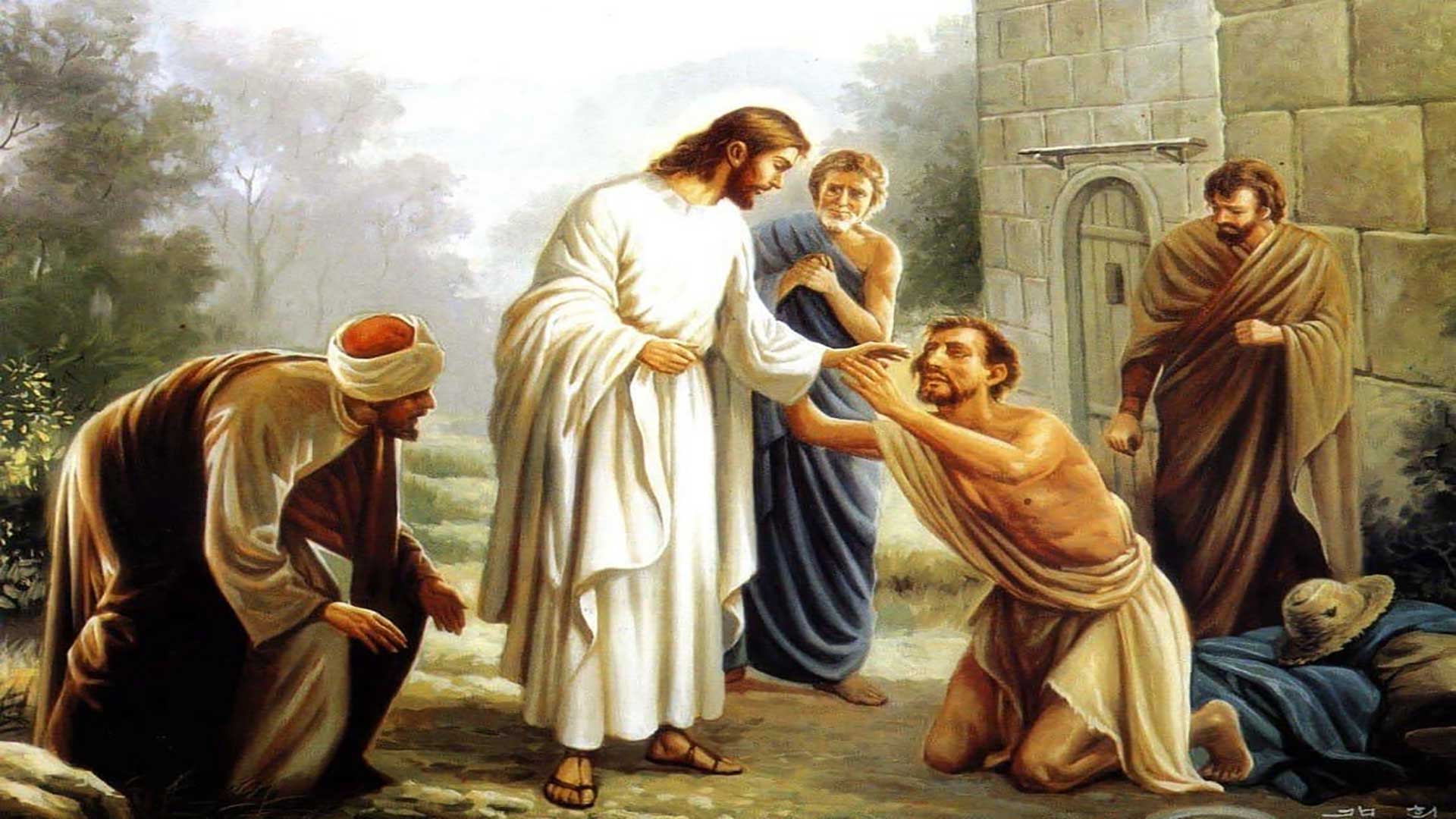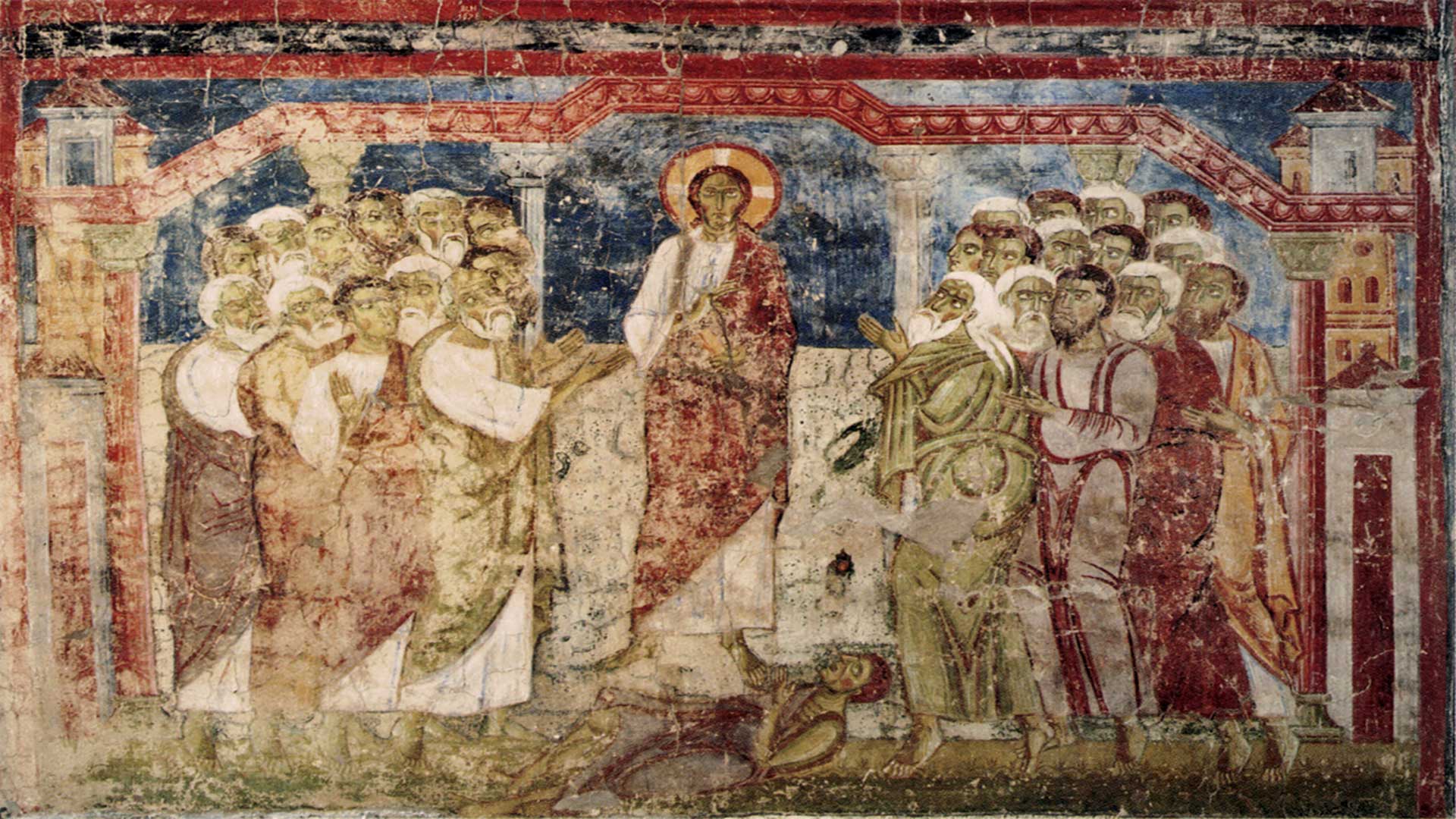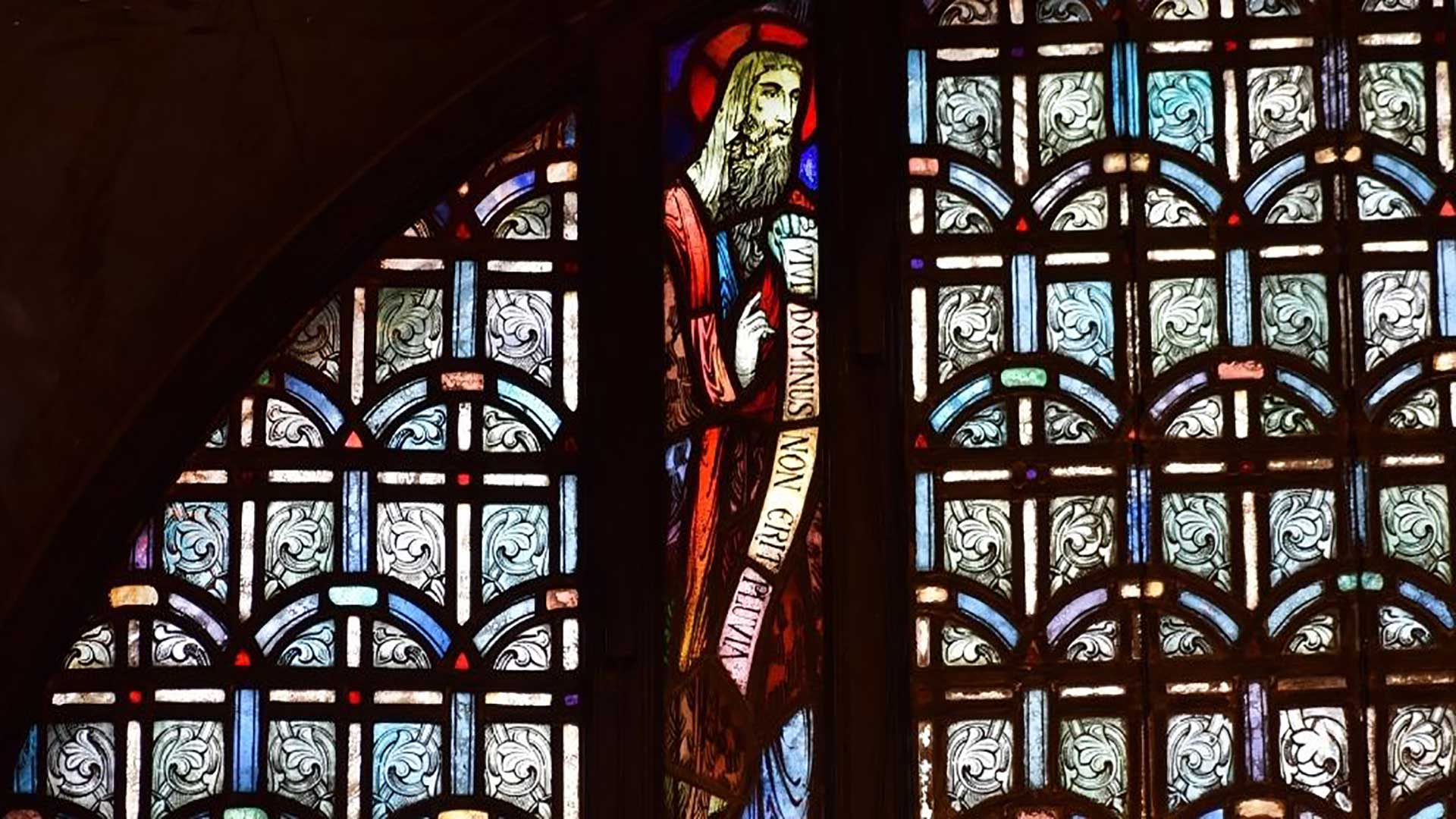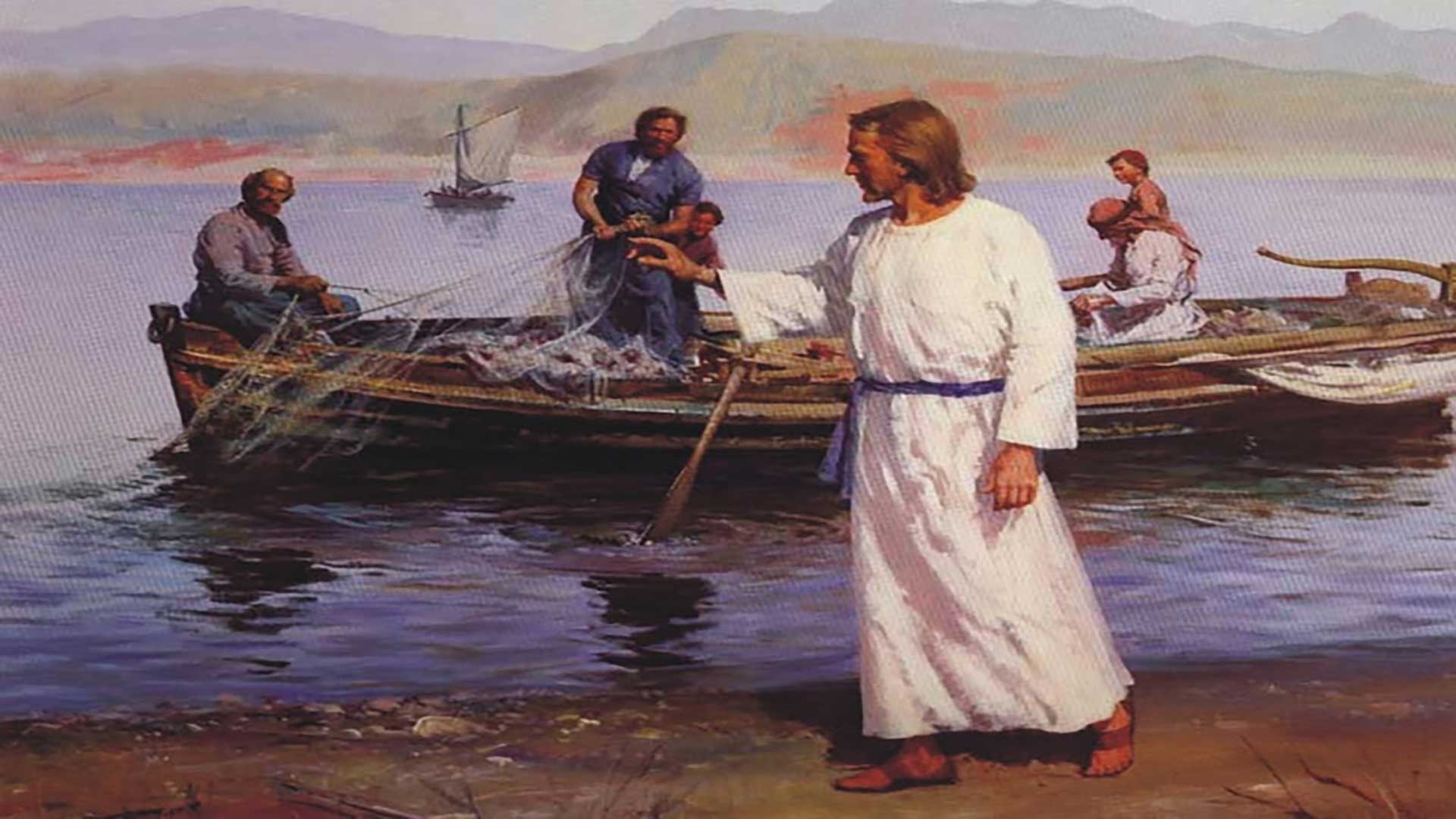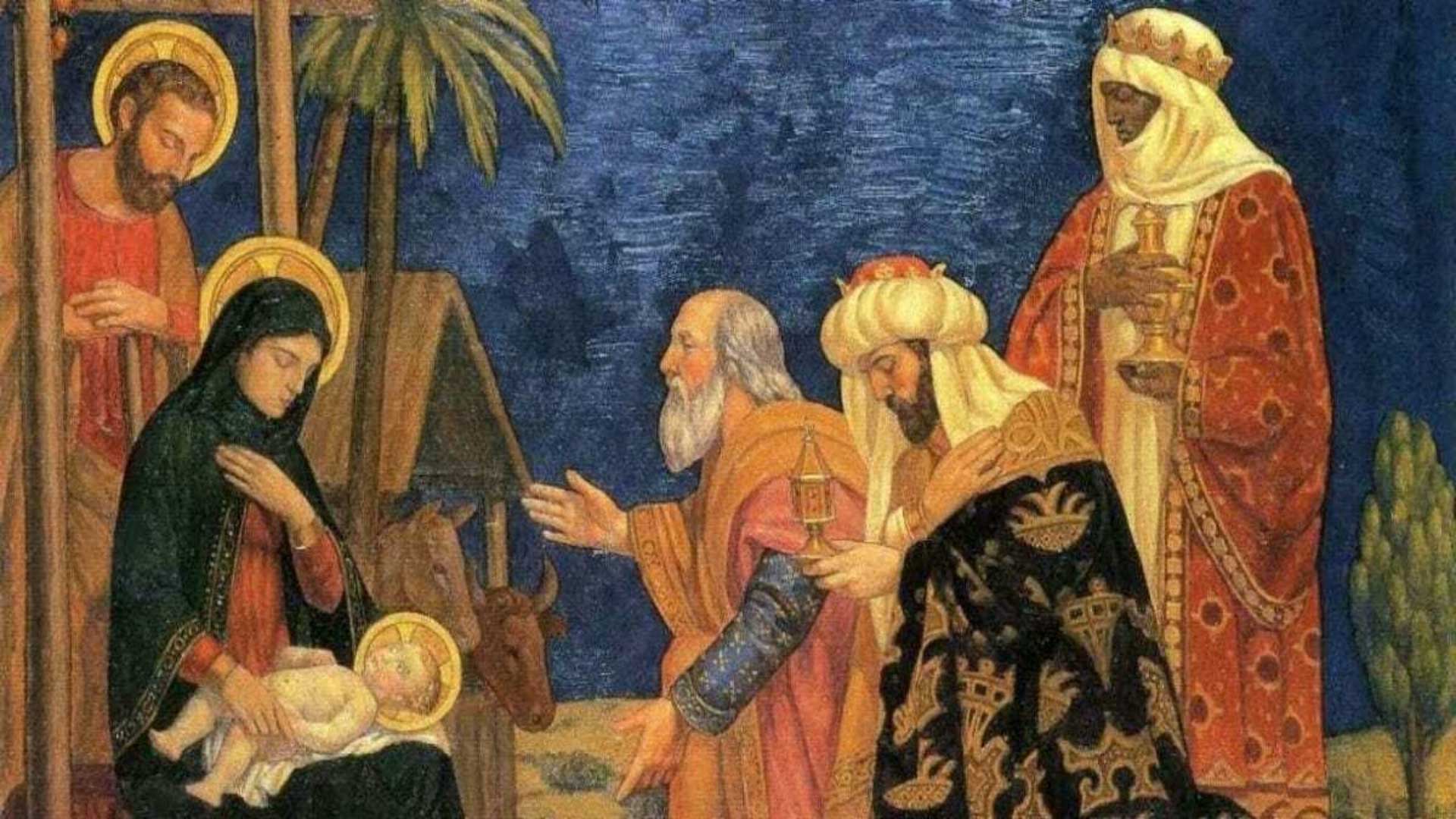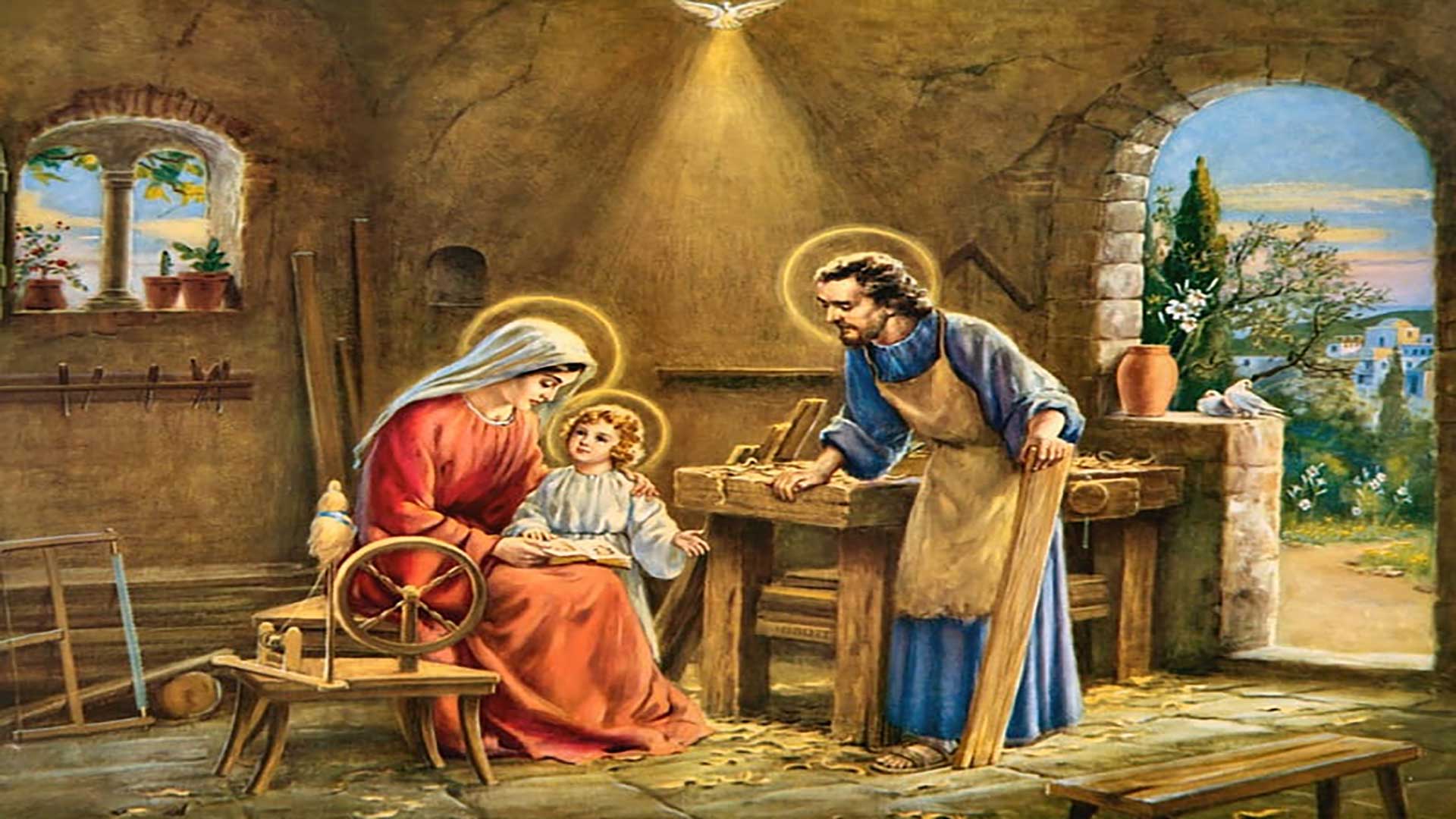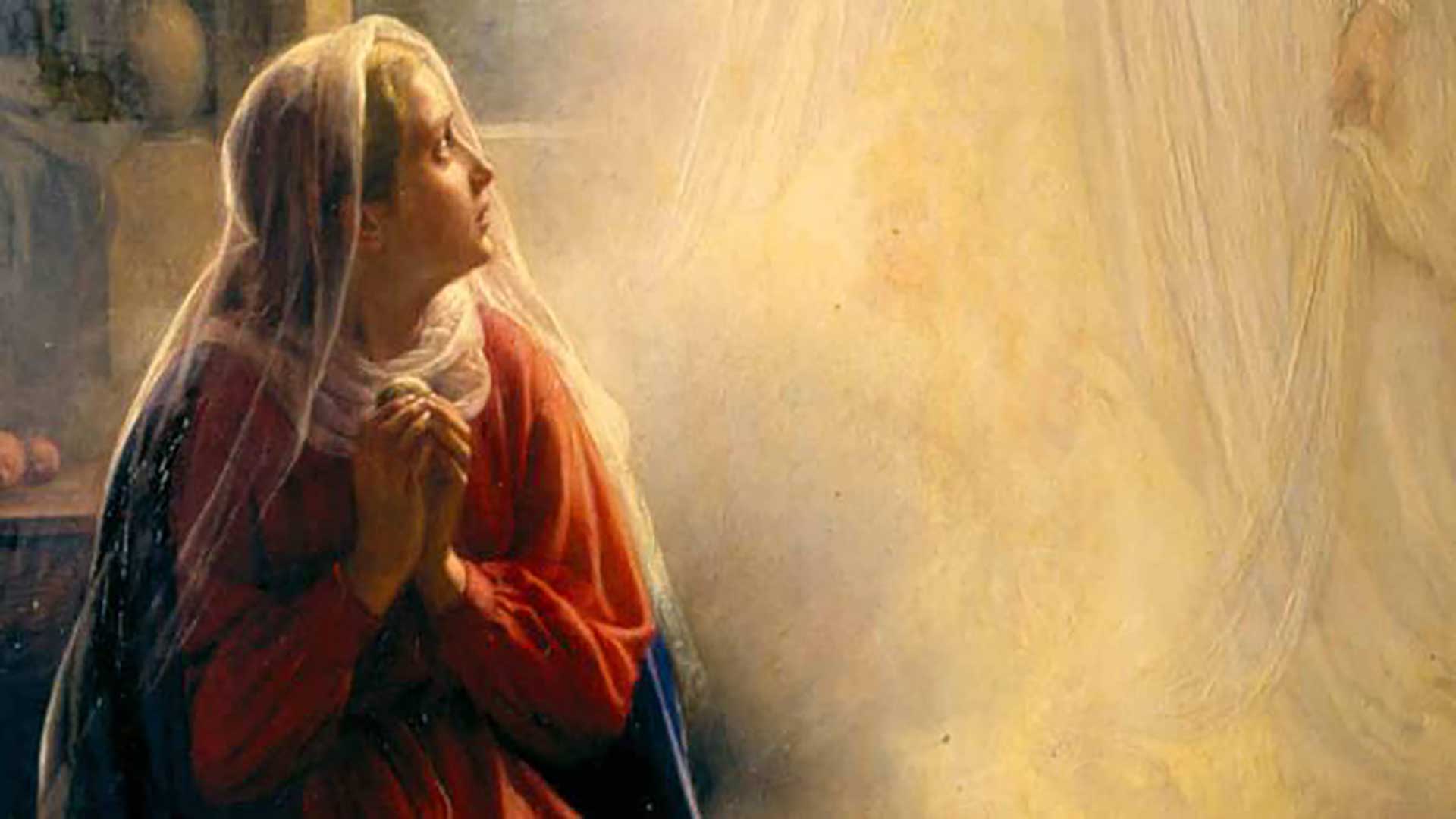Let’s walk right back to God!
Lent is an apt time for reflection and introspection. The Readings are so designed as to let us delve deep into our Christian being. They recall the times when God interacted with man and, closer to our times, sent His Only Son to the world. They take us back to the basics, showing a consistent theme running from the beginning of humanity to our days.
The First Reading (Gen 9: 8-15) speaks of the first Biblical covenant between God and humankind, in the person of Noah. After the deluge, when a new humanity arose, purified by the waters, God promised to never again flood the earth. God stooped down to hug humanity in a touching scene of an everlasting love.
It may be recalled that the Noahic covenant had become necessary after the one established with Adam had failed. In the Gospel text (Mk 1: 12-15) we encounter the Second Adam, Jesus Christ: He is tempted in the wilderness, just as Adam and Eve were in the Garden of Eden, but unlike them, Jesus stands up to the forces of evil.
Our Lord’s exhortation – ‘The time is fulfilled, and the kingdom of God is at hand; repent, and believe in the Gospel’ – is thus a clarion call to reflection and introspection that will lead to repentance. The wilderness is a privileged place for Jesus’ encounter with the Father; the forty days of solitude that He spent there evoke the forty days that Moses spent on Mount Sinai and the forty years of God’s people in the desert. Our Lenten season is a reenactment of those days.
You and I live in a worldly wilderness, a moral desert, a spiritual wasteland. But we may rest assured that, like the angels who ministered to Jesus while he was tempted by Satan, our Baptism helps us to withstand the evil forces of the world. We are not told explicitly what the ‘kingdom of God’ consists of, but a certain realisation wells up in the deepest recesses of our hearts, in the form of our inner conversion; it is a promise that we will one day partake in the merits of the Lord’s Resurrection.
Finally, St Peter in the Second Reading (1 Pet 3: 18-22) draws a parallel between the water that saved Noah’s eight and the water of Baptism that saves us. It speaks volumes of the Lord’s faithfulness. As the Psalm sings, ‘Your ways, Lord, are faithfulness and love for those who keep your covenant.’
Our prayer therefore should be that the Lord teach us His ways and let us walk in His truth; that He have mercy on us and remember us. There is no place for doubt, for the Lord is good and upright. However disastrous the circumstances of our lives may be, He shows the path to those who stray. Lent is thus that period par excellence when, with a contrite heart, we may walk right back into God's bosom.
Moving Corpses Miraculously Cured
Today is the optional memorial of Our Lady of Lourdes, superseded by the Sunday liturgy. Lourdes is the world’s centre of miraculous cures, and coincidentally two Readings of today focus on illness; they are replete with the word ‘leprosy’, a disease that for centuries awaited a cure. Like cancer today, leprosy would in the remote past send shivers down the spine. And much as we may think it has been eliminated, it continues to be a cause for concern, for where it was once eradicated, it has since resurfaced. The only difference is that while leprosy today is easily curable, perhaps the associated stigma is not. And few would realise that the stigma of sin is infinitely worse.
In the First Reading (Lev 13:1-2, 44-46) there is both the stigma and the pain. Moses, who was a member of the priestly tribe of Levi, was also the author of the Book of Leviticus. It is understandable that, at a time when physical abnormalities were attributed to sin, the Book should convey guidelines on how bodily diseases threatening society had to be handled. But we have to also capture the message of divine forgiveness and obligation of human sanctification that the Book contains.
Alas, how despicable was the treatment meted out to lepers; in fact, that was no treatment but condemnation! A leper’s distinguishing mark was torn clothes, hair hanging loose, lips veiled, and the cry, ‘Unclean, unclean’. He was not only regarded as unclean, he would be in that condition, alone, nameless and forgotten, in a habitation outside the residential areas, until Death took pity on him. Let those who baulk also remember what, not so long ago, victims of the much-hyped covid-19 were made to feel….
That is to say, our fallen nature remains unchanged – until we are touched by the Lord of Hosts, who is none other than Jesus Christ. It is evident from the Gospel text (Mk 1: 40-45) that He had both the compassion to reach out and the power to cure whoever needed His help – and who doesn’t? When the leper beseeched Him – ‘If you will, You can make me clean,’ Jesus was moved by pity; He did not stand on ceremony, but went ahead and cured him – ‘I will; be clean!’ He said. And the cure was powerful, instantaneous, undoubtedly supernatural.
Yet, He charged the man to say nothing to anyone but the priest. He makes a reference to Moses: ‘… and offer for your cleansing what Moses commanded, for a proof to the people.’ The proof consisted in changing his life for the better – his sanctification – what could be a greater proof that the Lord had touched him? In fact, Jesus did not want anyone to proclaim Him lest others should think that His Kingdom was of this world; He had not come to liberate their country but their souls. It is quite another matter that the man who was cured went out and talked freely about Jesus… What do we do? The unclean became clean; no wonder there was joy in his heart and a spring in his step. What about us?
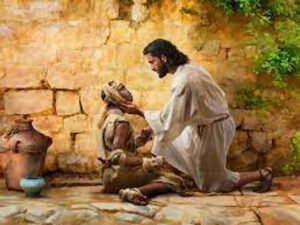
Who on earth has the power to cure moving corpses? Only Our Lord Jesus Christ: He washed away not only the pain but the stigma too. Quite significantly, St Lazarus – from Jesus’ parable of the wicked rich man (Lk 16: 19-31) – is the patron of lepers and against leprosy. Closer to our times, in Goa, St Francis Xavier would say Mass at the leper home in the suburbs of the old city on Sundays and tend their wounds with his own bare hands. In Sri Lanka, the same was true of St Joseph Vaz, who provided a healing touch to lepers and cholera patients alike.
Yet the disease did not touch those messengers of love. Of course, there is, on the other hand, the story of the Belgian missionary Fr Damien who worked in a Hawaiian leper colony, where he contracted leprosy himself. Similarly, in a secular setting, haven’t we heard of cancer specialists that have died of cancer, and paediatricians who have remained childless? That is the mystery of life. None can rightfully demand a miracle or even expect any sort of supernatural immunity.
Hence, St Paul’s formula in today’s Second Reading (1 Cor 10: 31 – 11: 1): he exhorts us to do everything for the greater glory of God. We have to win others over and let them be saved. In the remote past, even a lesser skin disease was feared for its uncleanliness, in our days, it is our stubborn sinfulness that must be feared. We ought to have faith and seek mercy at all times, from Jesus who is the Bread of Life. We are no more than moving corpses awaiting His miraculous cures.
Miracles and His Mission
Today’s Readings speak very especially to the mind and heart of modern man. They dwell on suffering, which in our times has assumed unprecedented proportions; they show how Jesus tackled people’s pain and anguish through His many miracles; and finally, they point to what our response to suffering ought to be in the humdrum of our lives.
The First Reading is taken from the Book of Job (7: 1-4, 6-7), which is a gem of world literature. Not only does it portray a deeply human drama of suffering and a very sublime response, it uses language with warmth of feeling and a healing touch. Job, an honourable man, rich and happy, is mysteriously disgraced. His friends take this to be a punishment for sin but Job, without claiming to be sinless, insists that his life's horrendous disasters are inexplicable.
The point is that suffering in not necessarily a result of personal sin; it can simply be a situation by which God wishes to test our faith. We may fail to understand it, but the Church teaches that suffering purifies and strengthens the souls that God loves. And he loves them all. So, it would be in the fitness of things to accept His rulings and go as far as to love and praise Him in all circumstances. Eventually, suffering works to the advantage of those who have accepted it with resignation.
Job’s story is both contemporary and eternal. He laments the drudgery of life just as we do: aren’t we but slaves to the world, moving from one day to another with chronic feelings of emptiness? Like him, we too long to rest, but then, aren’t we somehow anxious to start another day and get going? ‘I am full of tossing till the dawn,’ says Job, foreshadowing the predicament of the business executive of our times. Our ‘life is a breath’, and there is no denying – paradoxical though it may seem – that bondage to God alone is truly liberating!
The good news in Job’s case is that his health was restored, and he was blessed with twice as much wealth as before, ten new children, and a very long life. A miracle! Mind you, your life and mine may not be as dramatic, yet every moment of it is a wonder. If only we cared to think of the troubles that we have not been subjected to, our hearts would rise up to bless God’s name in thankfulness! We would break out singing ‘I’ve got something that the world can’t give and the world can’t take it away!’ Modern man is speechless vis-à-vis the Lord’s marvellous miracles.
In the Old Testament, miracles were aimed at moulding the Jewish people as servants of God Most High. Great marvels were performed by Prophets Elijah and Elisha, for instance, but alas, Jewish life was continually marked by unbelief, sin and unfaithfulness. Mercifully, God responded with faithfulness. To have humankind believe, He even sent His Only Son, who also wrought wonders – so many, so great and with such great ease – as only God could.

In the Gospel text (Mk 1: 29-39), Jesus, at the very beginning of His public ministry in Capernaum, cures Simon Peter’s mother-in-law and hordes of sick or possessed people. And why? To make known His divine authority and win souls: ‘That you know the Son of Man has authority on earth to forgive sins, I say to you, rise, pick up your bed, and go home.’ (Mk 2: 10-11). Seeking such relief in also a top priority in our days. But Jesus shows us that none of this is possible without a life of intense prayer – something for modern man to mull over – so, He rises early and goes out to a lonely place to commune with His Father in Heaven.
Let’s face it, our souls are like long cramped scrolls waiting to be smoothed out and soothed. Why not entrust our disordered and miserable selves to God? We would soon see His glory and spread the Good News of Salvation! St Paul makes it clear in the Second Reading (1 Cor 9: 16-19, 22-23) that preaching the Gospel ought to become second nature to us; we must proclaim it through thick and thin, without ever making it a ground for boasting or material gains, like the Scribes of old who used to cite texts for their own convenience and extort money from credulous souls.
For his part, the Apostle of the Gentiles made himself ‘a slave to all, that I might win the more.’ It does not mean that he acted in an unprincipled manner; rather, by diminishing himself, he became ‘all things to all men’, to achieve a greater good, that is, win souls for Christ. After all, we are called to be light of the world and salt of the earth – and that is the greatest miracle we may hope to witness in our mission here on earth!
Banner: https://rb.gy/hx42ru
Prophets of faithfulness
Prophets are what you and I are supposed to be. Prophecy is not a relic of the old times but our perpetual mandate as Christians. It is a gift we receive at Baptism, and which we will be able to use optimally so long as we are prayerful and faithful. In our day and age, however, even while we observe Christian prophets on the rise, we must remember that there are prophets and prophets; and it is important to distinguish between true and false ones.
This is not just a contemporary concern; it has existed since times immemorial. In the First Reading (Deut. 18: 15-20), which dwells on the theme of faithfulness, Moses announces the arrival of a mediator between God and Man, a prophet, who will speak to God and convey His message to the people. He is not entitled to interpret the law capriciously. God makes it clear that any such violation is sinful, and the wage of sin is death.
Accordingly, down the ages, Israel was favoured with many prophets but, ever disgruntled, the people consistently rejected them. They broke many covenants, until God, in His love and mercy, decided to send His Son into the world. Jesus became the Prophet par excellence, who exercised His mission perfectly and incomparably. John the Baptist, who was mistaken for that much awaited Prophet, unequivocally pointed to Him as “the Lamb of God”.
As seen from the Gospel passage (Mk 1: 21-28), Jesus in the synagogue, a regular rendezvous of the Jewish community, gave evidence of his messianic role: He taught the people as one who had authority, and not as did the scribes. That is to say, He was faithful to the Father in Heaven and His teachings came alive; on the other hand, the scribes, held as doctors of the Law, interpreted the scriptures as per their whims and fancies.
The Evangelist St Mark describes a typical day in Jesus’ public life in Capernaum, where He prayed in a community and attended to all who came to Him for physical and spiritual relief. Located on the northern banks of Lake Gennesaret (aka Lake Tiberias or Sea of Galilee), Capernaum was Our Lord’s adoptive city. At its synagogue, which He had frequented since childhood, like any faithful Jew, to fulfil the Law, He very significantly launched His ministry.
It is at that same synagogue that the evil one sought to challenge Jesus. Even though he acknowledged Him as the Son of God, the possessed man objected to Jesus’ ministry; he spread the canard that He had come to destroy Israel! The promise from Deuteronomy came alive when Jesus stopped the unclean spirit dead in his tracks.
Would it not be wonderful if God were to act directly in our midst today? But then, aren’t we His instruments, His hands and feet – He the Vine and we the branches? So, it is time we examined if we are being true to our Christian vocation; it is time we looked at our role in our families and in the world at large; it is time we checked how readily we stand by God and adhere to His law, or, instead, promptly jump on the bandwagon!
What are the obstacles in our way? St Paul hits the nail on the head when he refers to our wavering commitment. Married men and women have their own preoccupations about pleasing each other rather than the Lord. It may imply that a life of celibacy is a better sign of prophecy, but the Apostle does not pit himself against the institution of marriage; rather, he urges us, whether married or celibate, to always remain focussed on the Lord.

Prophecy makes the world go round, but at a time when people are becoming distrustful of institutions, governments, science and technology, and the media, we must beware of charming individuals that might try to fill the vacuum. Way back in the sixteenth century, innovators pretended to reform the Church but ended up dividing it. Let us not forget that, with the devil clamouring for our souls, we are ever in a state of siege. Or as Bishop Barron puts it, ‘in a world that has lost its bearings, those who speak the divine truth will, perforce, appear unhinged.’[1]
Hence, a summary of rules drawn up by trusted theologians and outlined by the Catholic Encyclopaedia [2], may be useful to show practically how the doctrine of prophecy is to be applied to devout souls in order to save them from errors or diabolical delusions:
(1) the recipient of the gift of prophecy should, as a rule, be good and virtuous, for all mystical writers agree that for the most part this gift is granted by God to holy persons. The disposition or temperament of the person should also be considered, as well as the state of health and of the brain;
(2) the prophecy must be conformable to Christian truth and piety, because if it propose anything against faith or morals it cannot proceed from the Spirit of Truth;
(3) the prediction should concern things outside the reach of all natural knowledge, and have for its object future contingent things or those things which God only knows;
(4) it should also concern something of a grave and important nature, that is something for the good of the Church or the good of souls.[3]
(5) prophecies or revelations which make known the sins of others, or which announce the predestination or reprobation of souls are to be suspected.[4]
(6) we have afterwards to ascertain whether the prophecy has been fulfilled in the way foretold, with a few limitations.[5]
Let us therefore learn ‘to distinguish true prophecies from the puerile, senseless, and useless predictions of fortune-tellers, crystal-gazers, spiritualists, and charlatans.’[6] The indisputable fact is that God is the alpha and the omega; without Him we cannot live. And a large part of our troubles would be gone if only we had trusted Him rather than the world. Let us, then, harden not our hearts but listen to His voice. He is the rock who saves; we ought to hail and give Him thanks. He cares for us and leads us by His hand, as the Psalm emphasises. There can be no greater blessing than that of being His faithful prophet.
-o-o-o-
[1] https://www.wordonfire.org/articles/barron/priests-prophets-kings/
[2] https://www.catholic.com/encyclopedia/prophecy
[3] These may tell things beyond human knowledge and yet within the scope of the natural knowledge of demons, but not those things that are strictly speaking the objects of prophecy (Ibid.)
[4] Three special secrets of God have always to be deeply respected as they are very rarely revealed, namely: the state of conscience in this life, the state of souls after death unless canonized by the Church, and the mystery of predestination. The secret of predestination has been revealed only in exceptional cases, but that of reprobation has never been revealed, because so long as the soul is in this life, its salvation is possible. The day of General Judgment is also a secret which has never been revealed (Ibid.)
[5] There are some limitations to this rule: (a) if the prophecy was not absolute, but containing threats only, and tempered by conditions expressed or understood, as exemplified in the prophecy of Jonas to the Ninivites, and that of Isaias to King Ezechias; (b) it may sometimes happen that the prophecy is true and from God, and the human interpretation of it false, as men may interpret it otherwise than God intended. It is by these limitations we have to explain the prophecy of St. Bernard regarding the success of the Second Crusade, and that of St. Vincent Ferrer regarding the near approach of the General Judgment in his day. (Ibid.)
[6] Ibid.
Repentance: an essential qualification
All three readings of the day talk about repentance, which is a channel for God’s blessings and graces.
In the First Reading (Jon 3: 1-5, 10), the vicious city of Nineveh changed its ways, following Jonah’s teaching, and was saved; and in the Gospel (Mk 1: 14-20), Jesus asks his people to ‘repent, and believe in the Gospel’ in order to be saved. Something there surely is that doesn’t love a hardened heart and calls us to compassion!
Jonah is a prophet best remembered for spending three days in the belly of a large fish. Another memorable passage is the prophet’s preaching: ‘Forty days, and Nineveh will be destroyed.’
Nineveh was the capital of Assyria, an aggressor country that the Israelites dubbed unjust and cruel. And therein lies the paradox of the narrative: God sends His prophet to an enemy country!
But all is well that ends well, for despite the prophet’s many subterfuges, he ends up in Nineveh and preaching there. As a result, upon taking God’s message seriously, the city was saved; and Jonah, too, whom God reproached, finally experienced His mercy and love.
So, it is not the belly adventure, if at all, that matters but the fact that God reaches out to everyone. The city dimensions are grossly inaccurate (the city, whose walls had a perimeter of twelve km only, was not very large) but that hardly matters. The crux of the message is that salvation is open to all – even to those who at first might oppose Him; all they must do is repent for their folly and acknowledge His kingdom.
That is also the essence of the Gospel. Jesus said: ‘The time is fulfilled, and the kingdom of God is at hand; repent, and believe in the Gospel.’ The Gospel is none other than the Good News as announced by Jesus Christ, and its proclamation; repentance, nothing but a genuine change of heart.
Jesus uttered those words as He entered Galilee after John's arrest. He knew that John’s end had come and that He had to begin His own mission. It was indeed a relay, for Jesus left behind the quiet life of Nazareth and went out to proclaim the Kingdom of God as the Precursor had done… It was also a replay, for Jesus knew full well that a similar fate awaited Him. King Herod had detested John’s prophetic witness: how would he ever come to love Jesus’ testimony? Moreover, Jesus not only called people to repentance but also to faith in God.
But that is not all. ‘Follow Me, and I will make you fishers of men,’ Jesus promised Simon and Andrew. This momentous assurance is a call to you and me as well. And we are told that ‘immediately they left their nets and followed Him.’ Now, what about you and me?
We often get entangled in our worldly nets, in our worldwide web, finding it embarrassing to even acknowledge, let alone proclaim, Jesus. We are concerned instead about what our neighbour will think of us, how mentally feeble and foolish they would regard us, if drawn into such 'fantasies'….
True Christians, on the other hand, consider that fantasies are in fact the stuff of the secular world! St Paul in the Second Reading (1 Cor 7: 29-31) is unequivocal: ‘The form of this world is passing away.’ So, we ought to give up all that we cling to, repent for our wrong actions, and earnestly seek the Lord our God. After all, He is the Way, the Truth and the Life. Repentance, then, would make a world of a difference; it would change everything.
The Apostle adds: ‘The appointed time has grown very short’. This is a reference to the time between the first and the second Coming of Christ. Are we ready to keep our eyes trained on Him? The renunciation of matrimony, mourning, or even rejoicing would be only symbols of our dedication to the Lord’s service, and repentance an essential qualification to enter the kingdom of God.
Are we ready to serve?
After the festive period of the birth, epiphany and baptism of Our Lord, it is the complete mystery of Christ that is focussed on in the Ordinary Time of the liturgical calendar. On this Second Sunday, the Readings portray the ever-readiness of Christ’s first three disciples and highlight a comparable personage of the Old Testament.
Samuel is that figure who, a millennium before the coming of Jesus, played a key role in Israel (cf. First Reading, 1 Sam 3: 3-10, 19). Born in answer to his mother Hannah’s incessant prayers and dedicated by her to God, Samuel worked under Eli the high priest. One night, he heard a voice calling his name. He thought it was Eli but it wasn’t. After this had happened three times, Eli, realising that it was the voice of the Lord, taught Samuel to say: "Speak, Lord, for Your servant hears."
Spiritually mature that he was, young Samuel answered God’s call without ifs or buts. As a prophet, he facilitated the transition from pre-monarchical period to the monarchy under Saul, king of Israel, and then again from Saul to David. He guarded the religious heritage and identity of Israel during the country’s defeat and occupation by the Philistines. Samuel was a priest, prophet and judge rolled into one, a key figure in state affairs.
A parallel figure in the New Testament is Simon, whom Jesus named Cephas, meaning Peter, for upon this ‘rock’ He would build His Church. The exact moment of their meeting is the interesting subject of today’s Gospel text (Jn 1: 35-42). Peter answered Jesus’ call, which had come to him through his brother Andrew. The latter and John the Evangelist were the first two disciples to whom John the Baptist showed the “Lamb of God”. For sure, the duo was drawn into a sublime interaction with Jesus, going by the fact that they met from the ‘tenth hour’ (4.00 pm) until late, so they even stayed with Him that night!
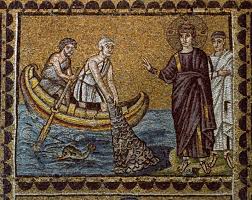
Look at how none of these individuals dreamt of acquiring power and influence, but of building God’s kingdom. John the Baptist did not project himself as the Lamb of God but humbly introduced Jesus as such. He was an honourable man who suffered a humiliating death by decapitation. That is how men and women of honour and merit are treated by the world, whereas those with nuisance value find their way into the corridors of power and many who flout moral and ethical principles are pampered by family and friends.
To such misguided elements, St Paul in the Second Reading (1 Cor 6: 13-15, 17-20) is loud and clear: ‘Shun immorality’. Although it is individual sexual immorality that the Apostle of the Gentiles is railing against here, we could stretch his censure to those devoid of principles, so much so that the writer had earlier used the expression ‘temple of the Holy Spirit’ with reference to the community (3: 16).
Since our concern must be to know what the Lord wants of us, readiness to serve Him cannot be on our terms. We ought to delight in His law in the depth of our hearts, and like Samuel, listen to His voice; or like Andrew, John and Peter, be ready to follow in His footsteps. But none of this is as easy as it seems, particularly when we are bent on doing our own little thing; rather, it calls for total commitment, self-effacement and self-denial; it demands of us readiness to face misunderstanding, ridicule, rejection, vendetta, abuse and violence, for God's sake.
On the other hand, the joy of knowing the Lord and serving Him makes us strong and happy. It prompts us pass on that joy to others; no wonder the Baptist introduced Jesus to his disciples, and Andrew quickly lets Peter in on his secret. What about you and me, what do we do?
Are we ready to serve, or are we entrenched in our petty affairs? Samuel and Peter remind us that we too have a vocation. In fact, the world would have been a better place if every parent taught his child to say, as Eli did: "Speak, Lord, for Your servant hears." With this prayer always on our lips, slowly we would begin to realise that nothing else really matters in life except our readiness to serve Him.
Banner: https://rb.gy/eg81x9
Manifesting Christ
Today's First Reading (Is 60: 1-6) delightfully addresses Jerusalem. Isaiah proclaims the good news that the city will rise and shine as soon as it catches sight of the Lord. Whatever may happen to the world, the Lord’s glory will been seen upon the holy city. Kings and nations will fall prostrate before her; her diasporic children will return, and all roads will lead to Jerusalem.
That is unmistakably the good news of salvation that the world will receive when the Divine Babe is born in Bethlehem, just 8 km away from the capital. Darkness or hopelessness may cover the earth and even thicker its peoples, but Jerusalem shall be covered by a multitude of camels as harbingers of hope; they will come from Midian and Ephah (both in present-day Saudi Arabia) and Sheba (now in Yemen and Ethiopia); they will bring gold and frankincense and proclaim the praise of the Lord.
Among those rare words of radiance, resplendence and rejoicing, it is anybody’s guess why Isaiah had no place for myrrh. In ancient times this resin, used for embalming, was almost as precious as gold. Why did the Magi offer it to the newborn? St. Augustine believes that Jesus received “Gold, as paid to a mighty King; frankincense, as offered to God; myrrh, as to one who is to die for the sins of all.”

What Isaiah had prophesied did happen. As today’s moving Gospel text (Mt 2: 1-12) tells us, three wise men of the East – whose origin, names and professions remain a mystery – came on camels, looking for the king of the Jews from the Royal House of David. He came as spiritual king, and this made Herod the temporal king jittery. Like all devious men, he tried to charm the threesome, but failed.
The chief priests and scribes whom Herod had contacted were fully aware that Bethlehem of Judea was destined to receive the Messiah. St Matthew says that the king was troubled “and all Jerusalem with him”. They are the same parties that would later put Him to death.
Meanwhile, with no other GPS but the star to guide them, the Magi followed its trail “till it came to rest over the place where the Child was born.” And what is more, after they had fallen prostrate, worshipped Him, and offered their precious gifts, “they departed to their own country by a different way.” Good old Isaiah had foretold: “And nations shall come to your light, and kings to the brightness of your rising.”
By relating that episode, the Gospel writer shows how the One that the Jewish authorities rejected, the pagans came to adore… Jesus Himself said no one is a prophet in his own land. Very often those to whom much is given and from whom much is therefore expected, give very little in return. If the Son of God could be treated thus, what right do you and I have to feel disheartened when a friend or relative gives us the cold shoulder or a thumbs-down?
So be it. God is not mocked, and whatever one sows, that will he also reap. God’s plans will never be frustrated; He will use others as His instruments. As St Paul points out in the Second Reading (Eph 3: 2-3, 5-6), the Gentiles are now “fellow heirs, members of the same body, and partakers of the promise in Christ Jesus through the Gospel.” Israel’s loss became the world’s gain.
Whereas at Christmas God humbled Himself, today at the Epiphany He is manifested as God and Universal King together with His Spouse, the Church (the New Jerusalem). He is no longer the Old Testament’s Messiah expected to come for one race and country alone, but the Messiah awaited by the peoples of the world. Let us manifest Him through our words and actions – through our threefold baptismal vocation as priest, prophet and king.
Gazing admiringly at Nazareth
Today, we celebrate the Feast of the Holy Family of Nazareth, which is rightly portrayed as a model of virtue. It will stay so until the end of times. Thanks to their supreme example of faith and love, families in our times can aspire to grow in wisdom and divine favour against all odds, if only we fulfil God’s precepts and labour honourably.
In the First Reading (Gen 15: 1-6, 21: 1-3), Abraham and Sarah appear as precursors to the Holy Family of Nazareth. Abraham was tenth in the descent from Noah and, like him, kept his faith. When directed to leave his native Ur of the Chaldees (near present-day Baghdad) for Canaan, Abraham did so ungrudgingly. God promised to make him the father of His people Israel, and they would multiply like the stars of heaven. However, until a decade later, he was still childless. His overaged wife, anxious to accomplish the Abrahamic covenant, permitted her Egyptian slave Hagar to sleep with Abraham, and she bore him a child, Ishmael.[i]
When Ishmael was fourteen, Sarah, who was ninety-nine, and her centenarian husband, gave birth to Isaac. This could only happen through Sarah’s faith, as the Second Reading (Heb 11: 8, 11-12, 17-19) emphasises. Years later, the near-sacrifice of the same Isaac on Mount Moriah would be another highpoint of the couple’s faithful obedience to God’s Word. How was Abraham expected to sacrifice his only son, who was destined to continue the family line? The Letter to the Hebrews very perceptively states: “He [Abraham] was confident that God had the power even to raise the dead; and so, figuratively speaking, he was given back Isaac from the dead.”
God speaks to us in myriad ways, sometimes in paradoxes, to test our faith. His ways are not ours; his logic is not ours. Yet, faith is not blind obedience to random demands from human institutions but a willing surrender to God’s will; it is an interior disposition rooted in the certainty that God, who is ever faithful, fulfils His promises. There are scores of things that we fail to make sense of at first; they are neither of our making nor of our liking, but there comes a point when everything begins to fall into perspective and we feel at peace. So, even if the world mocks at us and we feel helpless, let it be; like Chesterton’s Donkey, we ought to keep our secret nonetheless.
Today’s Gospel text (Lk 2: 22-40) presents two other wise individuals who lived by faith. The Holy Spirit had revealed to Simeon, the last prophet of the Old Testament, that he would not die before seeing “the consolation of Israel.” So, when he recognised the Messiah on the day of the purification, he sighed: “Lord, now let your servant depart in peace… for my eyes have seen your salvation, which you have prepared in the presence of all peoples, a light for revelation to the Gentiles and for glory to your people Israel.” And likewise, the elderly widow Anna spoke of Him to all who were looking for the redemption of Jerusalem.
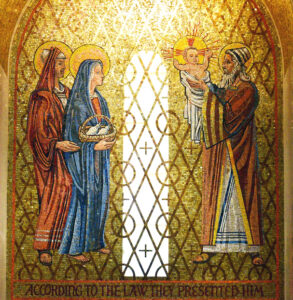
The ending of today's Gospel text evokes the joy of innocence: “And when they had performed everything according to the law of the Lord, they returned into Galilee, to their own city, Nazareth. Furthermore, the child grew and became strong, filled with wisdom; and the favour of God was upon Him.” It was not their will, but God’s will that mattered. Jesus was higher than the structures and rites of the Temple, yet He submitted Himself to the Mosaic law regarding the first-borns. That is a picture of a religious duty properly fulfilled by parents who serve as living examples of faith and integrity to the younger generations. Like Mary and Joseph, Simeon and Anna also belong to the small remnant of Israel who live their faith in humility and faithfulness to God’s law. In our day and age, alas, we too are a small remnant, aren't we?
May God grant such gratifying experiences to every parent and child in our world filled with uncertainty and turmoil. Isn't it absurd that the awful spectre of war should loom over God’s own country that gave birth to the Prince of Peace? However, this paradox can be resolved when we seek the theology of history. God forever upholds His covenant with us if we remember, as Abraham and Sarah did, that He is our God and we fulfil the law. They conceived, achieving what two dudes never will, try as they might!
The remarkable example of the Holy Family of Nazareth has perhaps never been more pertinent than today. It speaks not to individual families alone but to the world as a whole; it speaks not to the domestic church alone but to the Universal Church. Let us realise that, even though pious appeals are issued to families to aspire for holiness, the very institution of the family, which is the basic unit of society, is on the point of being destroyed by the stroke of a Vatican pen[ii]…. However, we are not to lose hope, for popular wisdom has it that God writes straight with crooked lines.
[i] Ishmael and his mother Hagar left to chart a future of their own.
[ii] Cf. the controversial Vatican declaration Fiducia Supplicans of December 2023.
Waiting in faithfulness and love
What a joy it is to reach the fourth and last Sunday of Advent! The season is a run-up to the arrival of the Messiah at Christmas and a prefiguring of His Second Coming at an unknown time in the future. It behoves us to wait in hope, and like the poor shepherds on that cold winter night on the hills of Bethlehem, we too will be let in on the divine secret.
The First Reading taken from the Second Book of Samuel (7: 1-5, 8b-11, 16) recalls the time when God had handpicked David from his pastoral calling to become king of Israel. The man after God’s own heart, who was favoured with peace and happiness, now wished to return the favour by upgrading the shelter of the Ark of the Covenant. He opened his heart in this regard to prophet Nathan.
But then, that very night God unfolded His plan to build the royal house of David as a temple to the Living God. It is another matter that subsequent generations were unfaithful; they lost the Ark of the Covenant and the Temple built by David’s son Solomon was destroyed. God renewed his covenant yet again, by sending His Only Son Jesus (as Son of David) to be born in Mary’s womb (the temple or tabernacle) and establish God’s kingdom (not a political one).
Unfortunately, the Jews unfolded their own story of unfaithfulness. They unceremoniously rejected the Messiah. No wonder, the Temple that had been rebuilt was destroyed (70 A.D.) and the Jews dispersed, suffering persecution worldwide. This is in stark contrast to Mary who was faithful. She gave her fiat, convinced that she was part of a Godly plan, and famously said: “Behold, I am the handmaid of the Lord; let it be to me according to your word.” That is the highpoint of today’s Gospel text (Lk 1: 26-38).
Let us learn from Mary. Even when we find it difficult to suspend our judgement and wear God’s thinking cap, try we must, for that is when God steps in and unfolds our personal roadmaps. We are called through Baptism and the other Sacraments to have a peek into that mystery. And a fuller understanding of it will come in due time.
That is why, St Paul in the Second Reading (Rom 16: 25-27) gives glory to God for “the revelation of the mystery which was kept secret for long ages.” This time around, it stands revealed to the Jews and pagans alike; it is the plan of eternal salvation wrought through His Son Jesus Christ. It is realised through the Cross, against all expectations, and manifested by the proclamation of the Gospel by the Apostles. And likewise, Mary continues to guide the Church by her supreme example of faithfulness.
Waiting for someone is a sign of faithfulness and love. And eventually God rewards humankind with “the gift of God Himself”, as Pope John Paul II says in his encyclical Redemptoris Mater, talking about the Virgin Mary: “The fullness of grace announced by the angel means the gift of God himself.” Hence, until Christmas, which is a few hours away, and until the Lord’s Second Coming, we can do nothing better than chant: “I will sing for ever of your love, O Lord.”
Banner: https://rb.gy/4fijod
A command called ‘Rejoice!’
Today is Gaudete Sunday. It comes with the good news that we are created by God to rejoice in Him. It’s a command. That’s what Gaudete means: Rejoice!

But then, why are we so often at the end of our tether? And can we afford to rejoice when the world is in a shambles and our personal lives awry? Yes, we can, for Christian joy is not bound to our whims, nor does it depend on how smoothly life is going; it doesn't depend on our bank balance or on how well our house is decorated, at Christmas or other times. Joy comes from accepting God’s will for us and feeling complete and fulfilled in our Christian vocation.
It is also important to note that Christian joy is not about frolicking but thanksgiving; it’s not about praying only when trials and temptations, pain and suffering come our way, but about having the Lord before our eyes at all times. So, feeling miserable is about having failed to rejoice in the Lord in the first place. He is the Alpha and the Omega, the be-all and end-all of our life. Thus, Christian joy is basically a spiritual, not a material, joy; it is an inner joy that spills out into externals, and not the other way round.
In the First Reading (Is 61: 1-2a, 10-11), the Prophet is upbeat about the Lord anointing him to bring good tidings to the afflicted; to bind up the broken-hearted; to proclaim liberty to the captives; to proclaim the year of the Lord’s favour and the day of His vengeance. Above all, the Lord’s promise to have righteousness and praise to spring forth before all nations is a cause for joy.
Here, “the year of the Lord’s favour” and “the day of the vengeance of Our Lord” may sound contradictory. It must therefore be clarified that while the former referred to the restoration of God’s people from Babylonian captivity (comparable to the “year of Jubilee” when liberty was proclaimed throughout the land, in Leviticus 25); the “day of the vengeance of Our Lord” refers to the time when God will judge His enemies on the last day. Favour and vengeance will go hand in hand, as God’s mercy and justice always do.
Isaiah's New Testament counterpart, John the Baptist, too, was happy to be anointed by the Lord. Today, St John the Evangelist (Jn 1: 6-8, 19-28) speaks of him as having been sent by God to bear witness to the Light, Jesus Christ. St Mark’s Gospel last Sunday described him as a man clothed with camel’s hair, with a leather girdle around his waist and surviving on locusts and wild honey; and today, we get to know him a little better through St John.
When questioned about his identity, the self-effacing Baptist made it clear that he was not the Christ, nor Elijah, nor even a prophet… “I am the voice crying in the wilderness”, he said, very simply, and quoting Isaiah, exhorted the people to “make straight the way of the Lord.” He clarified that whereas he baptised with water, among them stood One who would baptise them with the Holy Spirit and fire (cf. Lk 3: 16).
From Lk 4: 21 we know that, in the temple, after reading out that marvellous passage from Isaiah, Jesus commented: “This passage of Scripture has come true today, as you have heard it being read”, meaning that He was the long-awaited Messiah whose coming -- filled with the Good News of Salvation -- heralded the “year of the Lord’s favour” in modern times.
It is a pity that, like the Jews of yore, we too sometimes fail to pay attention to the One standing among us; we fail to hear the Good News. Yet, Jesus is invariably in the hungry, the thirsty, the naked, the homeless, the sick, and those oppressed for speaking the Truth…. For whatsoever we do to the least of our brethren, we do unto Him!
But let bygones be bygones. Let us resolve to be different from now on. It is never too late to turn a new leaf, make a new start. Let us believe and trust in the Lord always, give Him praise and thanks for all that He means to us. Let us not think of Jesus only when Christmas is round the corner. Rather, let us look forward to Christmas in the perspective of His Second Coming and be ready to receive Him in His glory.

That is why St Paul's advice (Thes 5: 16-24) bears repetition: “Rejoice always, pray constantly, give thanks in all circumstances; for this is the will of God in Christ Jesus for you… hold fast what is good, abstain from every form of evil.” That will ensure we will be blameless and joyful at the Second Coming.
Joy is a consoling certainty for us whose God is close to us and ever present in our midst. He is Emmanuel, God with us!

